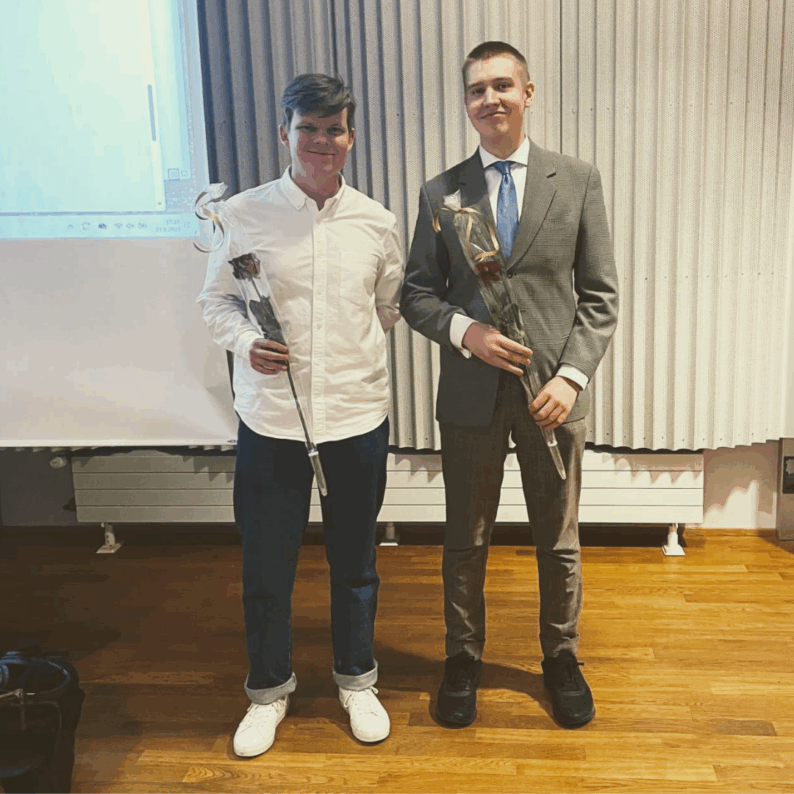


HYY’s municipal election programme 2025
NEWS
Healthy municipality, healthier student. The students of today resolve the challenges facing tomorrow’s Helsinki.
The City of Helsinki must make sufficient investments in students. Higher education students are having significant problems with subsistence and wellbeing, and the situation is made worse by the high rental level in the Capital Region. Helsinki’s prosperity depends on students and experts – their study opportunities and wellbeing form the cornerstone of the city’s future.
Public transport to help students get to campuses
Public transport is clearly the most popular way of getting around among students (Students’ City 2023). Smoothly running, affordable public transport helps students study full time and supports their wellbeing.
Affordable public transport:
- Restoring HSL’s student discount to 50% must be included in the Helsinki City Strategy. Sufficient discount on public transport tickets ensures that students can make their way to campuses affordably and ecologically.
Multilingual and dynamic Helsinki
The City of Helsinki must ensure that all students in Helsinki have the opportunity to study, work and lead a balanced life. The city must acknowledge internships and employment opportunities as a key element of international students becoming attached to Helsinki. By supporting internships, the City of Helsinki promotes students’ employment opportunities and improves the city’s ability to retain people.
In accordance with Helsinki’s operational programme on work-, study- and entrepreneurship-based immigration, the city group’s main goals include ‘the city’s role as a partner for companies and employers as well as in attracting international experts, companies and investors to the area’, ‘ensuring that the process of settling down in the area is a smooth one for international experts, families and companies’ and ‘developing and increasing its English-language services and communication as well as improving their customer orientation and quality’.
Trilingual Helsinki:
- The following goal is included in Helsinki City Strategy: By the end of the council term in 2029, Helsinki offers municipal services in Finnish, Swedish and English comprehensively to all residents of the municipality.
Services and employment opportunities in support of language skills:
- The city provides services in English and facilitates the learning of Finnish and Swedish through internships, for instance.
- The city must continue and develop activities that aim at resolving issues related to the availability of internship positions for international students in cooperation with students, higher education institutions and companies.
Affordable housing for students
Student housing foundations have a key role in providing housing for students in the Capital Region. Helsinki must support the operation of student housing foundations and ensure that students have a sufficient number of affordable, high-quality apartments that meet their needs available for them.
Housing is the single largest monthly expense that students have. The sufficient availability of affordable student housing thus has direct positive effects on students’ financial situation as well as their wellbeing. Affordable housing is one of the main factors that make it possible to study full time.
High-quality student apartments make Helsinki an attractive city for students and reinforce its status as a centre of education and research.
Significant increase to student housing production:
With the number of student places increasing, the number of student apartments in relation to the constantly growing number of students is extremely small. Student apartments built along good traffic connections offer solutions to reconciling the obligation to construct parking spaces between different forms of property management. A sufficient number of plots within a reasonable distance from higher education campuses must be reserved for apartments constructed by student housing foundations within Helsinki and the other municipalities of the Capital Region:
- A concrete annual production goal of 1,000 new student apartments must be set in the city strategy.
Vision for student housing in the Capital Region:
A long-term vision is created for student housing in the Capital Region to serve as a strategic guideline for the development of student housing in the Capital Region. The main goals of the vision must include increasing the number of student apartments as part of the solution to students’ housing shortage. The vision is created jointly by the Capital Region’s cities, higher education institutions and student housing foundations to ensure that the requirements of the student apartments of the future can be anticipated in it. The strategy takes into account the preservation of the diversity of different areas as well as local needs for the student housing stock. When developing the student housing stock, data on students’ wishes for their living arrangements from surveys commissioned by Hoas, for instance, must be taken into account. Other interest groups may also be utilised in suitable ways when creating the vision.
- A long-term vision for student housing created jointly by the City of Helsinki and the Capital Region’s other higher education cities, higher education institutions and student housing foundations in order to resolve students’ housing shortage is included in the city strategy.
Seamless health services throughout and after studies
Delays on care pathways are expensive from both human and societal perspective. If a student cannot access appropriate specialised healthcare services at municipal level, the delay may lead to so-called supporting visits. During these visits, the valuable resources of student health care are used for treating the patient even though their need for specialised health care has already been acknowledged. Supporting visits put a strain on the resources of student health care and slow down other students’ access to appropriate treatment.
Delays on care pathways may lead to a situation in which the eventual need for treatment ends up increasing in specialised healthcare services, too. Making students wait is expensive from both human and societal perspective.
When the FSHS refers a patient from basic health care to specialised health care, the criteria and the processing systems for the referrals should be coordinated with student health care. Currently, the referral process requires a lot of manual work and puts an unnecessary strain on the healthcare system.
Reducing the need for supporting visits:
- Higher education students’ care pathways between the FSHS and municipal health care are developed to ensure that students get timely access to specialised health care. This reduces the strain on the FSHS and frees up resources for the FSHS’s preventive work and basic health care. This, in turn, improves students’ access to appropriate health services.
Coordinating the referral systems:
- The referral systems of HUS and the FSHS are harmonised in a way that facilitates the smooth progression of treatment without unnecessary manual work. As a result of this, the city and HUS are able to allocate their resources more efficiently.
Further information on HYY’s municipal election objectives:
Teemu Virtanen
Specialist in social policy
teemu.virtanen@hyy.fi
Viena Pentikäinen
Board member
viena.pentikainen@hyy.fi



